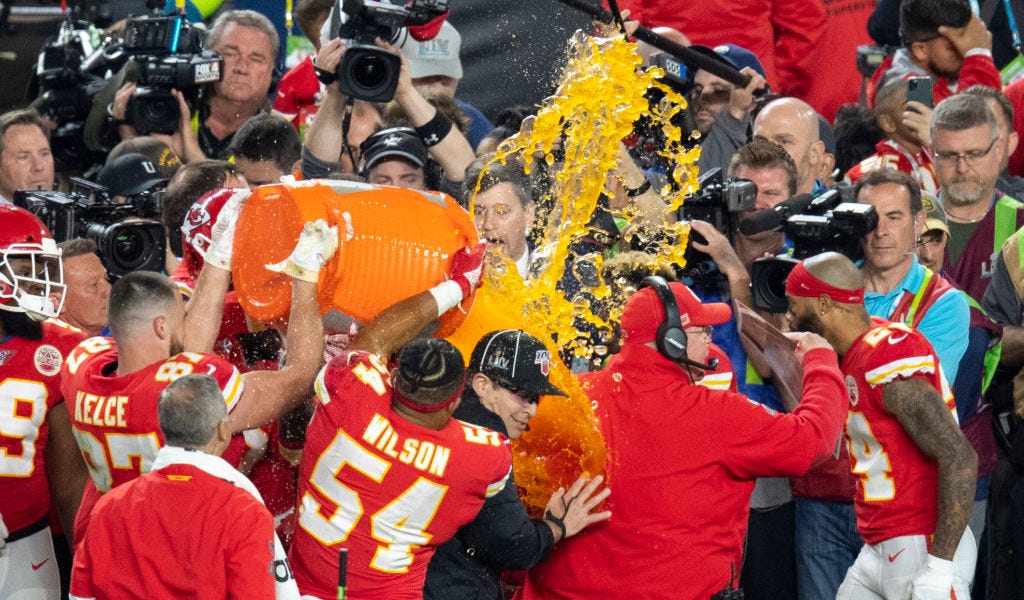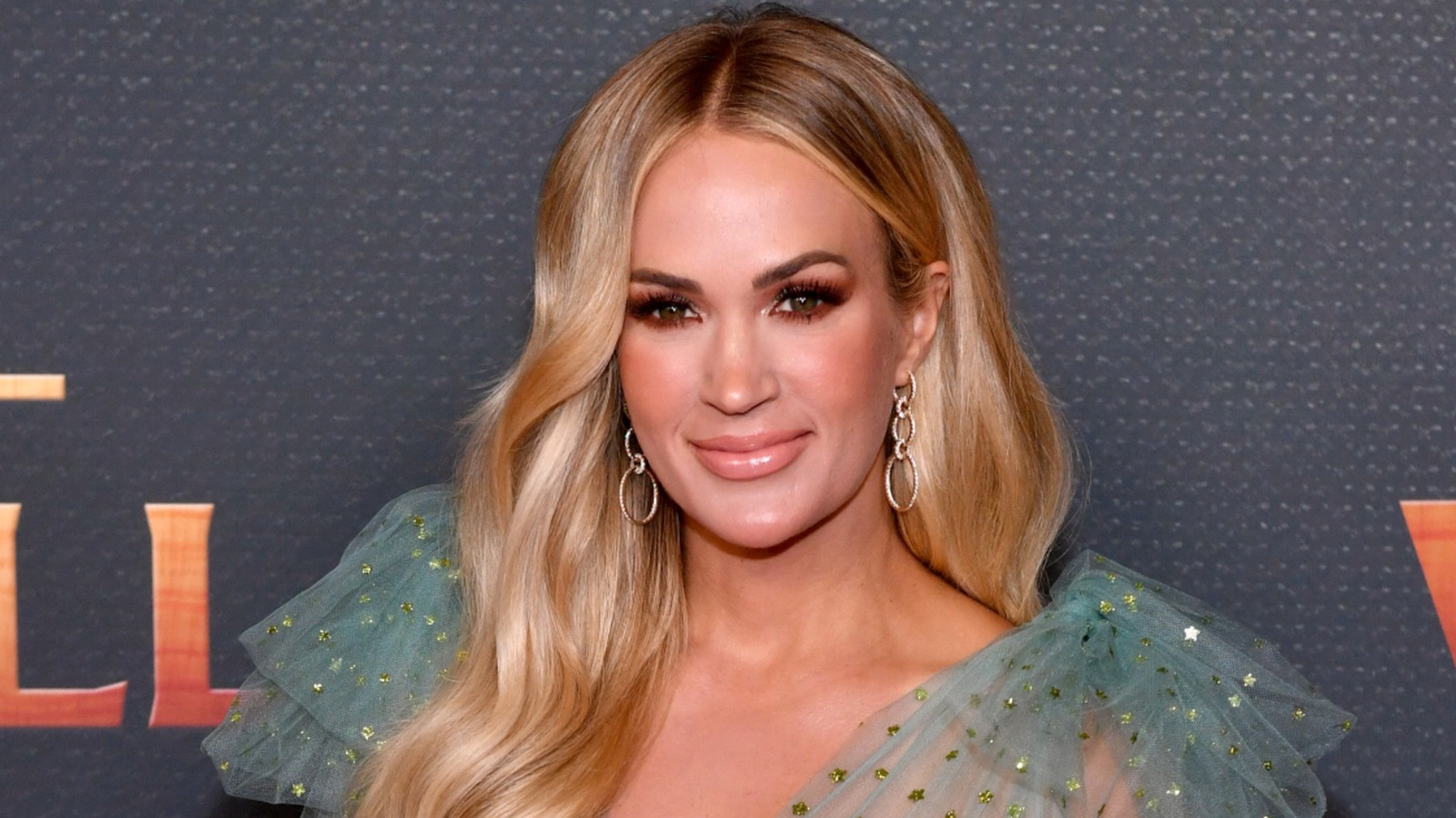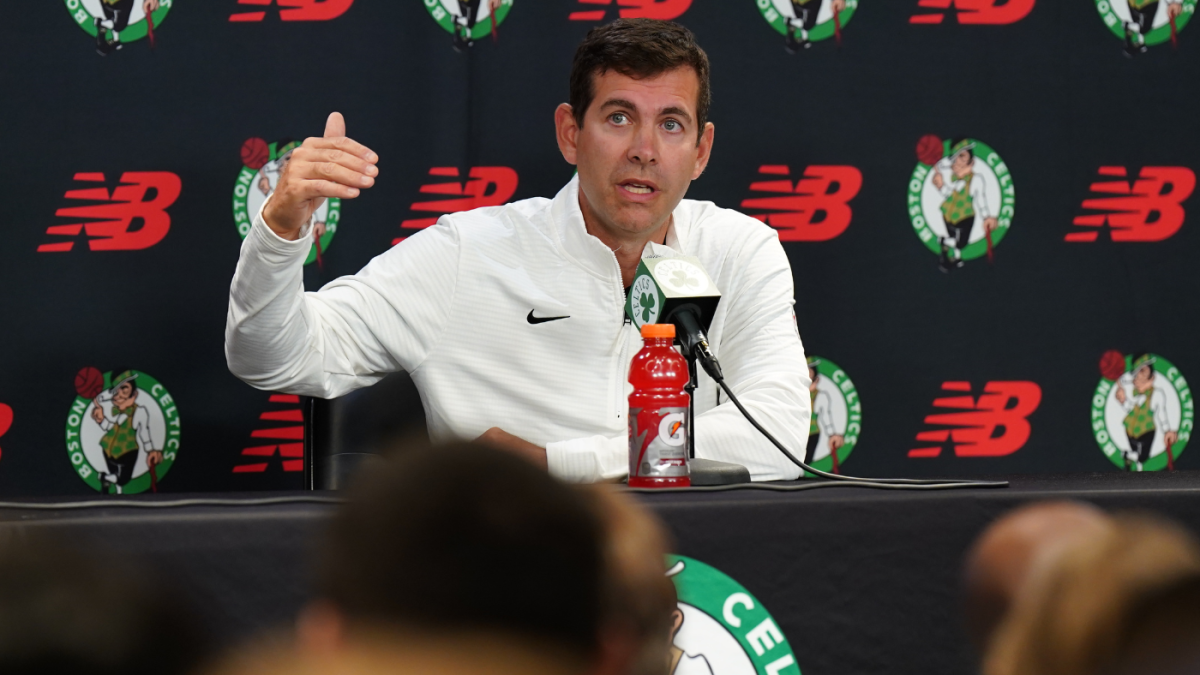Football, but make it more dangerous

Today the Philadelphia Eagles and the Kansas City Chiefs will face off in the Super Bowl. But the real stakes are off the field.
Many of the more than 100 million Americans who tune in won’t just be watching for fun: The American Gaming Association estimates that Americans will legally wager a record $1.39 billion on every aspect of the game, from the winning team to the outcome of the coin toss to the color of the Gatorade poured on the winning coach.
That’s because gambling — on almost anything — is part of American life now.
Readers like you make The Ink possible and keep it independent. Sign up to join our mailing list, support my work, and help build a free and fearless media future by becoming a paying subscriber today.
As a result of the 2018 Supreme Court decision to strike down a law called PASPA – one of a string of recent decisions by conservative courts that have undermined efforts to protect people from their worst impulses – sports betting is now legal in 38 states and Washington DC. And the major sports leagues, despite previously treating gambling as an affront to the sanctity of their sport, have embraced it wholeheartedly. Today, broadcasts regularly include commentators speculating on which bets will hit, ads for online sportsbooks like FanDuel and DraftKings, and even “live odds” shown mid-game to tempt viewers to place bets even after tipoff.
Americans used to have to go to casinos to place bets legally. Around one in five Americans now has a sports betting app on their phone, including four in ten young men. Sports fans are inundated with promotions encouraging them to join online sports books and place their first bets – and once they do, these companies hope, they won’t be able to stop. To make sure they don’t, these online sportsbooks use A.I. to microtarget users with offers they often find irresistible.
The marrying of these two enormously addictive elements — smartphones and gambling — has made tens of millions of Americans more invested in point spreads than they are interested in their favorite players.
The results have been disastrous. A report released last July found that in states that legalized online sports betting, the risk of household bankruptcy goes up by 25 to 30 percent. The authors of another paper found that gamblers — especially the ones facing the tightest financial constraints — are more likely to sacrifice their financial stability, put less money into investment accounts and are much more likely to overdraft a bank account and max out a credit card.
Many of these people are simply addicted: The National Council on Problem Gambling estimates that as many as 10.5 million Americans adults each year have a gambling problems, including 2.5 million whose problem is described as severe. In Australia, sports betting is already being treated as a national crisis, with the sportsbook industry described as predatory.
Gambling addiction hotline calls have spiked, with the callers increasingly young men. Many report losing jobs, businesses, families, and their life savings. “I literally can’t stop,” one fan wrote in his journal. As Jason Quick reported for The Athletic, he had lost more than $110,000 — nearly his entire annual income — in the 15 months since he placed his first bet. Some of these addicted gamblers turn to suicide.
The disturbing news doesn’t end there. Research out of the University of Oregon found a clear link between sports betting and domestic violence: Building on earlier research, researchers found that legalized gambling leads to a ten percent spike in intimate partner violence after NFL home team upset losses. That the effect is even larger in states with legalized mobile betting.
There is, of course, a simple solution to all this: Make sports gambling illegal again, at least outside a casino. But that will almost certainly not happen. Sports betting has already become a $11 billion dollar industry, and that means it has enormous political power to counter regulation. It has also become a significant revenue source for the states that have legalized it, a powerful incentive for them not to act.
But over all of that is the fact that the White House is now occupied by a former casino owner who has shown no qualms about profiting from gambling addiction. While Donald Trump has waffled on online gambling in the past, the sports betting industry sees him as a clear ally. As former Trump advisor Sam Nunberg put it, “I don’t think he’s in the business of regulating gambling from his past business experience.”
Plus, the world of online gambling has a lot in common with one of Trump’s favorite industries — cryptocurrency. Even putting aside the question of whehter speculating on cryptocurrencies just is gambling, both seduce investors with promises of potentially huge profits, both nowadays involve constant attention to your apps, and both play down the very real risks of losing it all. There is significant overlap between these worlds: The co-founders of FanDuel have, like Trump, aligned themselves with the crypto industry, even launching a crypto sportsbook.
Trump himself recently made a reported $100 million from his inauguration-eve memecoin launch, even as small investors lost money, and he has aligned himself with crypto-mad authoritarians like El Salvador’s Nayib Bukele. He is the last person you would expect to crack down on an industry just because it has the potential to destroy lives.
There has been some pushback: Two democratic lawmakers, Rep. Paul Tonko and Sen. Richard Blumenthal, introduced legislation last year seeking to reign in the online sportsbooks, countering the industry’s aggressive advertising, and limiting how much people can wager during a specific time period, among other steps. But under Trump, even that relatively watered-down legislation looks unlikely to ever become law. Meanwhile, the companies that host gambling apps in their app stores appear entirely uninterested in cracking down. Apple’s own Sports app even conveniently includes betting odds.
The corrosive effect of all this on Americans — particularly the young men who are aggressively targeted by online sportsbooks — is only getting worse. The NCAA found that 60 percent of young men on college campuses are now betting on sports. One out of ten college students is described as a “pathological” gambler. Many are naïve about money and do not understand the risks they face. But they are being indoctrinated into a life of gambling at a young age, and the long-term impact will be enormous.
Gambling addiction therapist Harry Levant told 60 Minutes that he has patients who cannot resist gambling away their student loans — and some whose addictions are so serious that they gamble while driving or in the shower. Diana Goode, executive director of the Connecticut Council on Problem Gambling, compares the rise of online gambling to the opioid crisis — and warns we are only at the beginning.
So if there is someone in your life who is considering wagering on the game this weekend, you can try to help them understand the risks involved, particularly if they plan to use one of the online sportsbooks. They will likely dismiss your concerns, maintaining that they can place a single bet without becoming addicted. And for some people, that’s true. But these apps are relentlessly focused on keeping you coming back — and as their explosive growth makes clear, they are very good at it. And it can be enormously difficult to recognize you have a problem until it is too late.
Readers like you give The Ink its independence. Sign up to join our email list, and help keep us free and fearless by becoming a supporting subscriber.
Photo by Doug Murray/Icon Sportswire via Getty Images
Related
Pennsylvania gambling revenue up in January despite sports betting decline
Gambling revenue in Pennsylvania increased 10.9% year-on-year during January despite the state’s sports betting market reported further declines. Total ma
Gambling Trade Group Seeks Invite to Feds’ Futures Trading Summit
The American Gaming Association filed a formal letter to the Commodities Futures Trading Commission (CFTC) on Thursday afternoon requesting to attend next mon
Corner store gambling and recreational drugs are flawed proposals for…
Gov. Josh Shapiro has proposed a $51 billion dollar budget for the 2025-2026 fiscal year. Tax revenues to support his big spending plan rely upon legalizing cor
New research shows rise in people looking for gambling addiction…
PHOENIX (AZFamily) — New research shows more people are looking for help with gambling addictions since the Supreme Court cleared the way for states to legali












